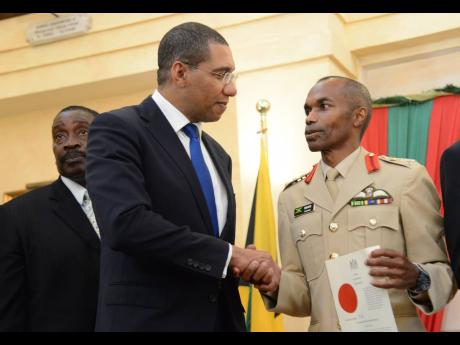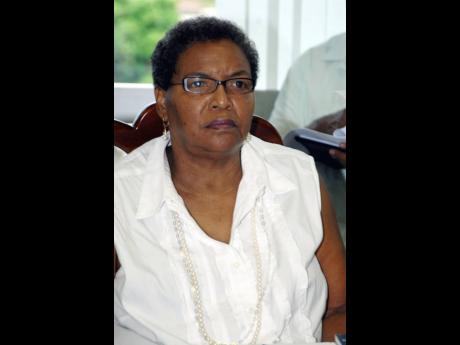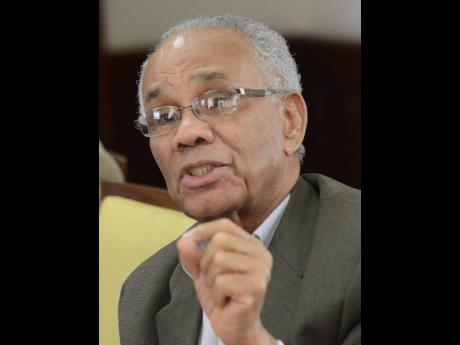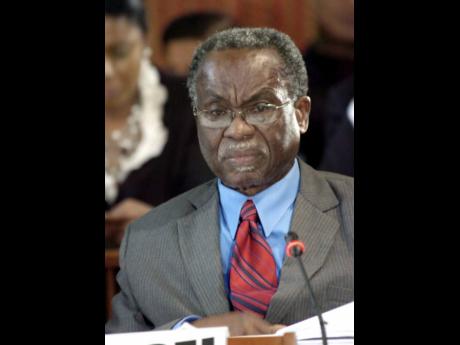ROCKY MOVE: Questions raised over legality of Meade’s pick as Cabinet secretary
Lieutenant General Rocky Meade’s appointment as Cabinet secretary has been met with scepticism by former senior civil servants who have expressed concern that it may not be in keeping with a provision of the Jamaican Constitution. Meade, the former...
Lieutenant General Rocky Meade's appointment as Cabinet secretary has been met with scepticism by former senior civil servants who have expressed concern that it may not be in keeping with a provision of the Jamaican Constitution.
Meade, the former Jamaica Defence Force (JDF) chief of defence staff, will also head the public service, the Office of the Prime Minister (OPM) said Tuesday in a media statement.
The basic salary scale for the Cabinet secretary, according finance ministry documents of October 2021, ranges from $7.4 million to $9.3 million annually.
Prime Minister Andrew Holness said that Meade's years of experience in government will be an asset to the public service and a crucial part of his administration's thrust towards efficiency and service excellence.
His appointment comes amid unfolding reform of the public sector and a review of compensation by the finance ministry.
But questions are being raised about the legality of the appointment and whether it breaches Section 92 (1) of the Constitution.
That section outlines that the secretary to the Cabinet, who is appointed by the governor general, acting on the recommendation of the prime minister, must be selected from a list of public officers submitted by the Public Service Commission.
“If he has resigned or retired from the military, he would not be part of the public service on any basis,” said Lloyd Barnett, one of the country's foremost constitutional lawyers.
“In order to be appointed to the post of Cabinet secretary, that person should be a public officer. So, on any basis, if he is no longer a public officer, then he would not qualify for the appointment,” Barnett said in a Gleaner interview.
Meade, who is to replace Ambassador Douglas Saunders next month, retired his army post in January.
Attorney General Dr Derrick McKoy declined comment, late Tuesday, on the legitimacy of Meade's appointment.
De facto Information Minister Robert Morgan also withheld comment on the rationale for Meade's selection.
Morgan said that the press statement issued by the OPM was sufficient.
The Gleaner was unable to reach Alvin McIntosh, chairman of the Public Service Commission, for comment.
Meade was appointed chief of defence staff of the army in December 2016 and has been lauded for the conceptualisation and implementation of several projects, including the Flight Safety Programme, the Jamaican Military Museum, the JDF's Language Lab, Technical Training Institute, and farm.
The former JDF head holds a Bachelor of Arts and a Master of Arts in linguistics from The University of the West Indies and a Master of Military Arts and Science degree from the US Army Command and General Staff College. He also has a PhD from the University of Amsterdam.
Former Cabinet Secretary Dr Carlton Davis said that there are questions to be answered about whether a military officer constitutes a public officer.
“It (appointment) has never risen before, so I've never given much thought to it until this appointment,” said Davis, who pointed to the provision of the Constitution which governs selection.
He said that he was selected on the basis of his time at the Jamaica Bauxite Institute where he served as its first executive director.
Saunders, who has served as Cabinet secretary since 2008, is a former permanent secretary in the Ministry of Foreign Affairs and Foreign Trade.
Former Financial Secretary Shirley Tyndall, too, pointed to Section 92(1) of the Constitution, noting that, when the post of Cabinet secretary was set up, the governing provision stipulated that the position must be filled by someone drawn from the public service.
Tyndall said that it was not clear if the military formed part of the public service.
She said that, on the face of it, that may not be the case.
“The other issue in the international community, do you really want the world to look on Jamaica as militarising its public sector?
“The public sector is called the civil service, which is completely different from the army. So, we must think about perception and how the country will look drawing the head of the civil service from the military,” Tyndall said in a Gleaner interview.




